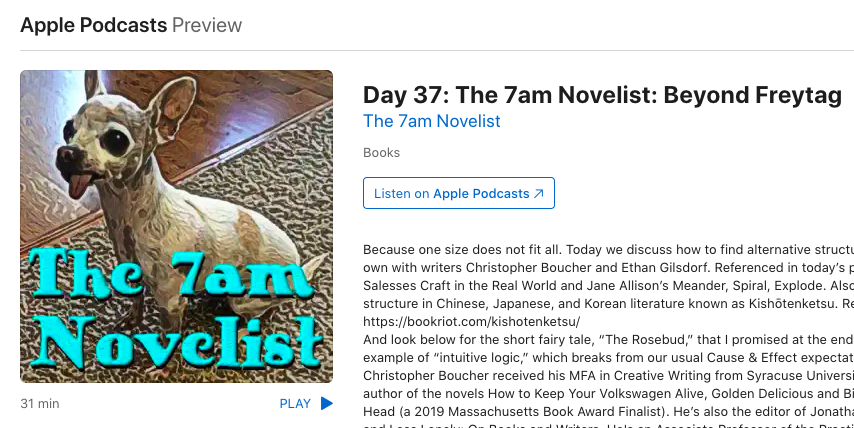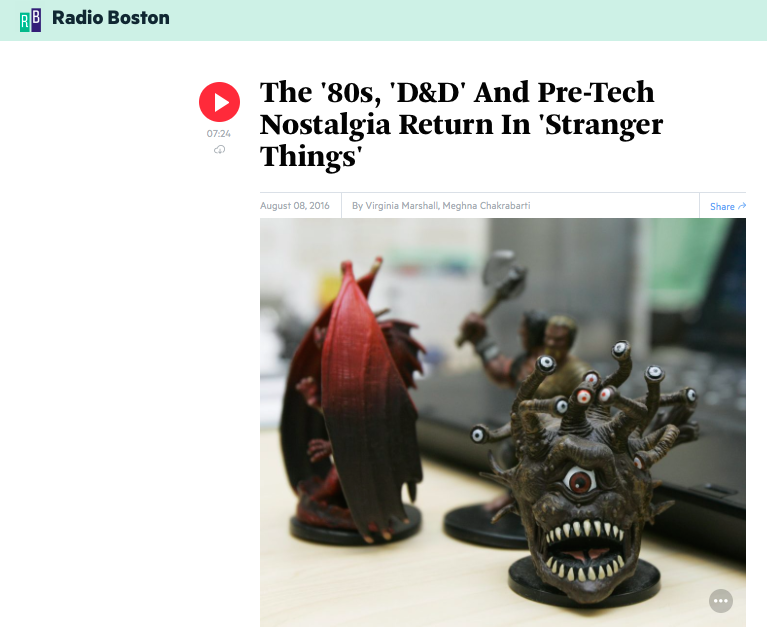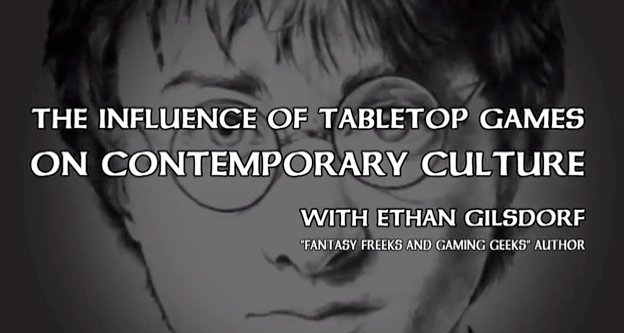Discussing narrative structure on the 7am Novelist podcast
On Michelle Hoover's The 7am Novelist podcast, I discussed how to find alternative structures and shape your own with host Michelle and writer Christopher Boucher, and how to go "Beyond Freytag" in re-examinging traditional narrative structure in your novel, story or essay.
What Can We Learn From Star Trek, 50 Years Later?
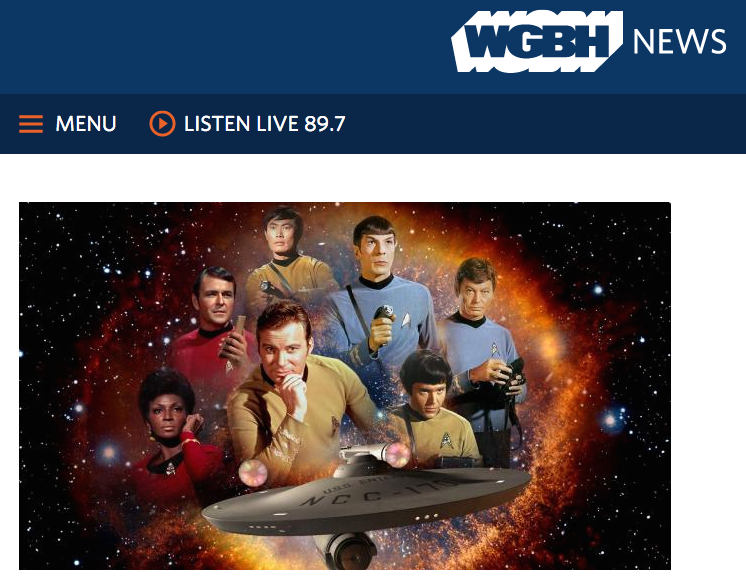 "Fifty years ago today, Star Trek launched its first “five year mission” on televisions across the country. The Starship Enterprise’s goal, “to explore new worlds… to boldly go where no man has gone before” gave viewers the opportunity to explore new realms; space, time, and the far reaches of human condition. The future, as envisioned by creator Gene Roddenberry, was portrayed as a place of great unity and equality, progress and diversity. According to author and nerd-culture critic Ethan Gilsdorf, that message is needed more than ever in 2016."
"Fifty years ago today, Star Trek launched its first “five year mission” on televisions across the country. The Starship Enterprise’s goal, “to explore new worlds… to boldly go where no man has gone before” gave viewers the opportunity to explore new realms; space, time, and the far reaches of human condition. The future, as envisioned by creator Gene Roddenberry, was portrayed as a place of great unity and equality, progress and diversity. According to author and nerd-culture critic Ethan Gilsdorf, that message is needed more than ever in 2016."
Listen to my appearance on WGBH's Boston Public Radio with Jim Braude and Margery Eagan.
Of Hobbits and Hippies

Over on the Imaginary Worlds podcast, I had a chance to talk about J.R.R. Tolkien, hobbits and hippies, among othert topics.
The '80s, 'D&D' And Pre-Tech Nostalgia Return In 'Stranger Things'
50 Years On, 'Star Trek' Fandom Continues To Prosper

Fifty years ago, "Star Trek" aired across the country Captain Kirk, Spock, Scotty and the crew of the Starship Enterprise. What's behind the franchise's enduring appeal, and why is Boston such a Trekkie haven? I appeared on WBUR's Radio Boston to discuss. Listen here.
Why D&D is good for you: the podcast
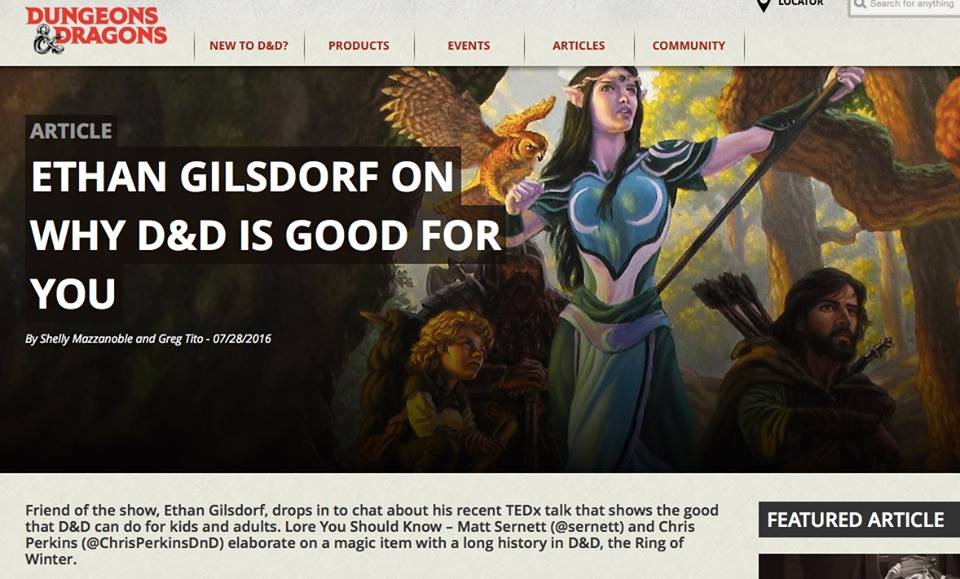
The folks at Wizards of the Coast, aka D&D headquarters, kindly invited me to be on their Dragon Talk podcats to pax poetic about D&D and why it's so good for you. Hope you enjoy. You can also grab it on iTunes here.
A 2006 Interview with Ralph Bakshi
 Bakshi in the 1970s.
Speaking of unearthed treasures from the past, I just unearthed this 2006 interview I did with legendary experimental animator Ralph Baskhi.
Bakshi in the 1970s.
Speaking of unearthed treasures from the past, I just unearthed this 2006 interview I did with legendary experimental animator Ralph Baskhi. I recently wrote about him in connection with new, unearthed footage from his Lord of the Rings adaptation.
I hope you enjoy.
 Ralph Bakshi in 2009 (Wikimedia Commons)Speaking of unearthed treasures from the past, I just unearthed this 2006 interview I did with legendary experimental animator Ralph Baskhi. I recently wrote about him in connection with new, unearthed footage from his Lord of the Rings adaptation. I hope you enjoy.
Ralph Bakshi in 2009 (Wikimedia Commons)Speaking of unearthed treasures from the past, I just unearthed this 2006 interview I did with legendary experimental animator Ralph Baskhi. I recently wrote about him in connection with new, unearthed footage from his Lord of the Rings adaptation. I hope you enjoy.
An interview with Ralph Bakshi
by Ethan Gilsdorf
[November 2006]
Ralph Bakshi, pioneer of trippy, controversial cartoons with adult themes, has always been able to make films on the cheap. But lately, Bakshi has learned frugality doesn't open doors in Hollywood. Nor does the title 'legendary independent animator': Bakshi hasn't been able to get studios interested in his latest project, the "The Last Days of Coney Island," budgeted at a mere $5 million.
Yet computers may save him. For Bakshi, the promise of low-cost technology is that it could allow outsider animation to rise again. His new Bakshi School of Animation and Cartooning, based in Silver City, New Mexico, teaches a hybrid of old techniques: hand-drawn 2-D, processed in computers using relatively inexpensive software like Toon Boom.
Ralph Bakshi was born in October 1938 in Haifa, Israel. In 1939 his family came to New York escaping the war. He grew up in Brooklyn and went to the High School of Industrial Arts, now called High School of Art & Design. His first animation job was with Terrytoons Animation Studios, where he upset the status quo by becoming an animator on Mighty Mouse and Heckle & Jeckle shorts without working his way up the ranks. He started his own production company in the late 1960s, and in 1972 he finished his first feature, "Fritz the Cat,' the first cartoon ever given an X-rating.
 He went on to direct 'Heavy Traffic' (1973), which screened at the Museum of Modern Art. With this film he began his trademark mix of live action, animation, and animating characters against a backdrop of still photos, a technique continued in the controversial 'Coonskin' (1975). 'Wizards' (1977) was his first film extensively using rotoscoping (using live footage as a guide for animation). 'The Lord of the Rings' (1978), 'American Pop' (1981) and 'Fire and Ice' (1983) were his last major works before returning to TV and 'Mighty Mouse' shorts in the late 1980s. But a frustrating battle with Hollywood over 'Cool World' (1993) began his disenchantment with full-length production.
He went on to direct 'Heavy Traffic' (1973), which screened at the Museum of Modern Art. With this film he began his trademark mix of live action, animation, and animating characters against a backdrop of still photos, a technique continued in the controversial 'Coonskin' (1975). 'Wizards' (1977) was his first film extensively using rotoscoping (using live footage as a guide for animation). 'The Lord of the Rings' (1978), 'American Pop' (1981) and 'Fire and Ice' (1983) were his last major works before returning to TV and 'Mighty Mouse' shorts in the late 1980s. But a frustrating battle with Hollywood over 'Cool World' (1993) began his disenchantment with full-length production.
Bakshi spoke via telephone from Silver City, New Mexico. Among the many issues on his mind was the future of outspoken and edgy animation in the United States.
Ethan Gilsdorf: It seems that independent, feature-length animation for adults doesn't even it exist any more.
Ralph Bakshi: I have a very strong feeling about that. First of all, it's very complicated. The companies that are doing animated films right now are very huge companies. They have lots of money invested in technology. They spend so much money on their films that have to make huge grosses to make back their investment. A guy like me is very dangerous to them.
Gilsdorf: My sense of full-length animation is it's booming, but it's all being marketed to kids, other than films like 'Corpse Bride,' 'Nightmare before Christmas,' and 'Final Fantasy' (which is based on video game). Other than foreign films like 'The Triplets of Belleville,' animation for adults is really just special effects sequences in live action fantasy/sci fi/adventure movies.
Bakshi: Tim Burton is naturally making films his way. He's being very true to himself. That's his style of humor. But he gets to make the films because his other films are so successful. Tim Burton worked with me on 'Lord of the Rings.' It was his first job out of college, I hired him. He used to paint cels. He's being very honest as a filmmakers; he's not making what people want to see. He's making what he wants to see. But you go to Hollywood and mention Tim Burton in relation to Ralph Bakshi and people will say, 'Well that's Tim Burton.' I liked 'Triplets of Belleville.' I'm using more live action than 'Belleville' [in the 'Last Days of Coney Island'].
Gilsdorf: How have you adapted to the new climate?
Bakshi: I went out the Hollywood a couple of years ago. I thought, my budget was $5 million, I could go anywhere. I thought it was a slam dunk. They all wanted me to get involved in computer animated films. But no one would dare to buy it ['The Last Days of Coney Island']. I had about eight minutes of film and a completed script. I thought budget was a slam dunk. For a Bakshi comeback film, it seemed like a no-brainer. I tried for about a year. The structure of Hollywood had become very strong there was no way in. My freedom I had in the 1970s I took for granted. [Today, it's all the] business approach to animation. No one wants to do anything else. I could become a threat if I could make a profit with a $5 million film. I grew up feeling like a $30 million gross was a lot of money. It IS a lot of money [he laughs like a cartoon character]. I come from the old school. If you make $5 million profit that was a lot of money.
 Bakshi in the 1970s.
Bakshi in the 1970s.
[Hollywood] doesn't have the same business [system] as I was when a young man. With 'Coney Island,' the budget was still low. I asked one guy, should I have a budget of $150 million and pocket the rest? He said yeah, but you have to make [the movie] PG.
Gilsdorf: Sounds like a real attitude change. It's all about the money now.
Bakshi: Who runs these companies? I grew up being animator, Disney grew up as an animator. I grew up at time when the man who ran the animation company was a animator. He had hands in a production background. [These days] these companies are all run by people who don't have a production background.
Gilsdorf: This recent Hollywood experience must have changed your outlook on making animated features.
Bakshi: What they'd done is taken a lot of freedom away from me, from filmmakers who want to make personal films. [So] I went back to painting and drawing. I'm still doing film, slowly.
Gilsdorf: Do you think the digital revolution will help your comeback?
Bakshi: Everyone wants to do computer animation. It's not because I'm against it, I just don't want to do it. I don't think any one style is the answer to any film. One style doesn't stop the other. Computers don't kill hand drawn film. It's just a technique, a preference. It's like saying acrylic paint is going to kill oil paint.
Gilsdorf: What do you think of CGI techniques?
Bakshi: I saw 'War of the Worlds.' I think what they're doing with special effects is amazing. It's very close to magic. Let's not confuse my personal taste in animation with special effects in motion pictures. When an entire building collapses and explodes [as in 'War of the Worlds'], and thousands of men in armies attacks each other [like 'The Lord of the Rings'], that's amazing. I just don't think that's for animation.
Gilsdorf: And your opinion of digital rotoscoping like in 'A Scanner Darkly' and 'Waking Life,' by Richard Linklater?
Bakshi: I don't want to talk about it. I don't want to put the guy down. The guy's trying. I gave up on rotoscope because I don't like it. I don't want to do that look. It's cold. It's lifeless, and it has no heart. I much prefer hand drawn, like Fleischer, I like using hand drawn techniques.
Gilsdorf: Tell me how qualitatively the two techniques, hand-drawn versus digital, are different.
 Bakshi: Say my character is in a subway. I'll use a real shot of an elevated subway going by up above. And I'll doctor it, color it. It's like an animated character is living in a real world. I have real animation. You get all the shadows that are real, that they're not rendered. It's the same technique I used in 'Coonskin' and 'Heavy Traffic.' I am not using rotoscope. I think it takes the fun away from the stories I want to tell.
Bakshi: Say my character is in a subway. I'll use a real shot of an elevated subway going by up above. And I'll doctor it, color it. It's like an animated character is living in a real world. I have real animation. You get all the shadows that are real, that they're not rendered. It's the same technique I used in 'Coonskin' and 'Heavy Traffic.' I am not using rotoscope. I think it takes the fun away from the stories I want to tell.
Gilsdorf: But rotoscoping also has its benefits. It saved you time and money, in films like 'Wizards' and 'Lord of the Rings.'
Bakshi: If you do adult animation, you have to have a sense of believability. Using live action had that sense, with rotoscoping, like in 'Heavy Traffic.' [But] I used to have to have hundreds of people to make [those effects] happen, all the labor, the optical house fees.
Gilsdorf: So, yes, aren't there are benefits to computer animation, in terms of cost, economy of scale?
Bakshi: [Software like] Toon Boom has a lot more choices, one thousand percent more choices, for a fraction of the cost. I had a studio in a box. Everything I used to spend millions of dollars on I could do for nothing. I could do a film like 'Heavy Traffic' for a one hundred percent better quality for a tenth the cost. You get shadows [all these effects]. I was amazed. I went crazy.
Gilsdorf: So, let's say you can get the money. Is there still a market for films like the ones you made in the 1970s and 1980s?
Bakshi: The audiences want something different. If you're looking at one type of movie all the time, a computer generated film, it gets boring. If I was looking at say $90 million to make a film with adult themes, that would be chancy. But if you make a $5 million Bakshi film I don't see that as risky. It seems like a slam dunk. 'Fritz the Cat' was a hit [because it was the right film at the right time]. I can make $30-40 million profit on a film. I can't see how they can turn me down. I'm still very puzzled by it. I don't know what the truth is. I don't know how people can turn it down when adult comics, adult cartoons, all are doing very well, 'The Simpsons,' for 15 years on TV, it's been doing very well. 'Adult Swim' is doing very well.
Gilsdorf: And you can make a profit?
Bakshi: My original version of 'The Lord of the Rings' made $90 million. Saul Zantez also produced the second. The original film was a smash hit, compared to the $8 million that it cost to make it.
Gilsdorf: And your fans, where have they gone to? You haven't really made a film, that was totally yours, since 'Fire and Ice' in 1983.
Bakshi: I don't want to blow my own horn, but I'm getting more emails, more letters, I'm selling more DVDs, to 18, 20 year olds. They are all discovering my films. The fan following around the world is so huge. People are re-discovering my film. Cels from film my wife sells at $250-$500 a piece. That's what funding my films. You can go to any college and people know what a Bakshi film is. I was stunned. But I thought I had failed. Artists, want to leave something behind.
Gilsdorf: What did you think your legacy was?
 Bakshi: When I quit the biz, I felt defeated, I felt tired. But [now] I feel very vindicated. I get hundreds of emails from kids all over the world, Russia, China, Japan, about 'Heavy Traffic,' 'Coonskin.' They are amazed that my films exist. I get emails from rappers saying that I had discovered rap music. I like what Kerouac said, 'If you live long enough you get rediscovered.' My films still speak to a new generation of disaffected young people. But you tell me why they [studios] won't buy a movie from me. I can make a low budget film and make a profit a movie company. I have my own fans that aren't dead. I have young fans. And word of mouth. I don't feel bad at all.
Bakshi: When I quit the biz, I felt defeated, I felt tired. But [now] I feel very vindicated. I get hundreds of emails from kids all over the world, Russia, China, Japan, about 'Heavy Traffic,' 'Coonskin.' They are amazed that my films exist. I get emails from rappers saying that I had discovered rap music. I like what Kerouac said, 'If you live long enough you get rediscovered.' My films still speak to a new generation of disaffected young people. But you tell me why they [studios] won't buy a movie from me. I can make a low budget film and make a profit a movie company. I have my own fans that aren't dead. I have young fans. And word of mouth. I don't feel bad at all.
Gilsdorf: So what is the next chapter in the Bakshi story?
Bakshi: I don't have the fire in my belly to run around the world and raise money. It's a lifestyle choice. I'm 68. I'm counting on guys like you [the jjournalists]. Someone will read this, some producer might say, 'I might take a chance.' I'm not running around Hollywood embarrassing myself. I will continue to putter around on my film until I finish it, or I won't finish it. I'm not going back to Hollywood. It was too embarrassing, it was a hard pill to take.
Everyone wanted my autograph to give to their kid. It's disheartening when you're someone my age. The '70s, the days of truly independent filmmaking were better than I ever knew. Can you believe what's going on out there in the world? It's crazy. Global warming, war. Even more reason to do adult themes. You've got to start facing what's going on. What does it take for Hollywood to take a chance? I think there's a huge audience for adult animated films. Maybe if one came out, maybe someone would call me.
Ethan Gilsdorf is the author of 'Fantasy Freaks and Gaming Geeks: An Epic Quest for Reality Among Role Players, Online Gamers, and Other Dwellers of Imaginary Realms." He publishes arts, pop culture and travel stories, essays and reviews regularly in the New York Times, Boston Globe, Salon.com, as well as BoingBoing and PsychologyToday.com, and contributes regularly to Boston NPR affiliate WBUR's Cognescenti blog.
D&D on the BBC
 My D&D world tour continues in the UK. I was fortunate to be interviewed by the BBC's Radio 5 "Up All Night" host Adam Rosser with authors Mark Barrowcliffe (The Elfish Gene) and Jim Swallow (author of numerous Star Trek, Doctor Who books). Included in this retrospective about D&D and its 40th birthday, there's also a segment with Ian Livingstone (co-founder of Games Workshop). You can listen to the archived Feb 5 show here: http://www.bbc.co.uk/programmes/b03szml0. Click the big arrow and bump the episode up to around the 02:13:15 mark, which is where the D&D segment begins. (I think this link will be up for a little while. Let me know if the link is dead and I'll try to find the archived show elsewhere.)
My D&D world tour continues in the UK. I was fortunate to be interviewed by the BBC's Radio 5 "Up All Night" host Adam Rosser with authors Mark Barrowcliffe (The Elfish Gene) and Jim Swallow (author of numerous Star Trek, Doctor Who books). Included in this retrospective about D&D and its 40th birthday, there's also a segment with Ian Livingstone (co-founder of Games Workshop). You can listen to the archived Feb 5 show here: http://www.bbc.co.uk/programmes/b03szml0. Click the big arrow and bump the episode up to around the 02:13:15 mark, which is where the D&D segment begins. (I think this link will be up for a little while. Let me know if the link is dead and I'll try to find the archived show elsewhere.)
D&D 40th anniversary: Media doubleshot!
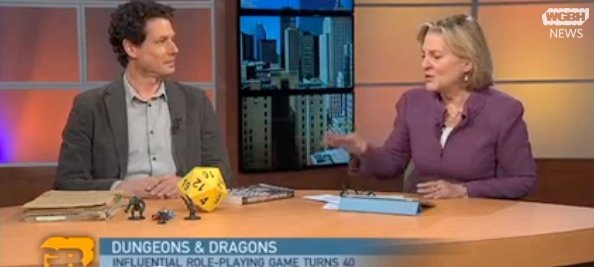 D&D 40th anniversary media week continues! I appeared on WGBH twice this week to talk about the importance and impact of Dungeons & Dragons. Once on radio, once on TV.
D&D 40th anniversary media week continues! I appeared on WGBH twice this week to talk about the importance and impact of Dungeons & Dragons. Once on radio, once on TV.

D&D 40th anniversary media week continues! I appeared on WGBH this week for a segment titled "At 40, What D&D Has Really Created" --- in which I geek out with Emily Rooney on WGBH WGBH News Greater Boston.
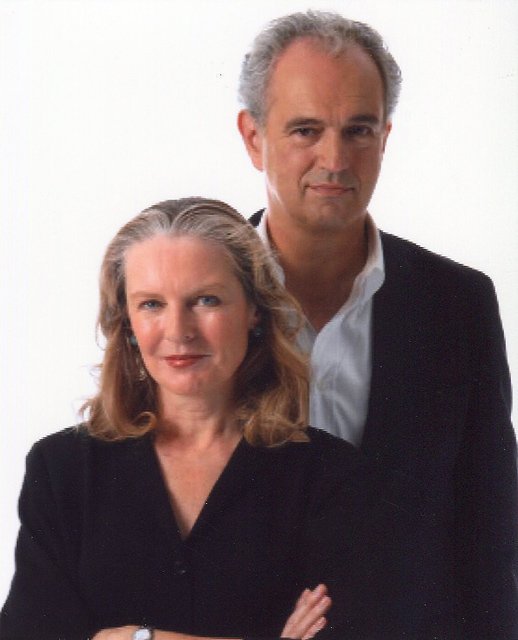
Also, I taught WGBH Boston Public Radio hosts Jim Braude and Margery Eagan how to play D&D, among other things.
Book Picks on WGBH
 Um, how terrifying is TV? Not so bad, once you're on camera. And the time just flies.
Um, how terrifying is TV? Not so bad, once you're on camera. And the time just flies.
I'm late to posting this, but I appeared before Xmas on WGBH's Greater Boston back in December.

Um, how terrifying is TV? Not so bad, once you're on camera. And the time just flies.
I'm late to posting this, but I appeared before Xmas on WGBH's Greater Boston program with Andre Dubus (House of Sand and Fog) and Marianne Leone (Jesse, a Mother’s Story). We discussed our holiday book selections.
Watch below, or get the video plus text of our book picks right on the WGBH site.
On WPR discussing D&D
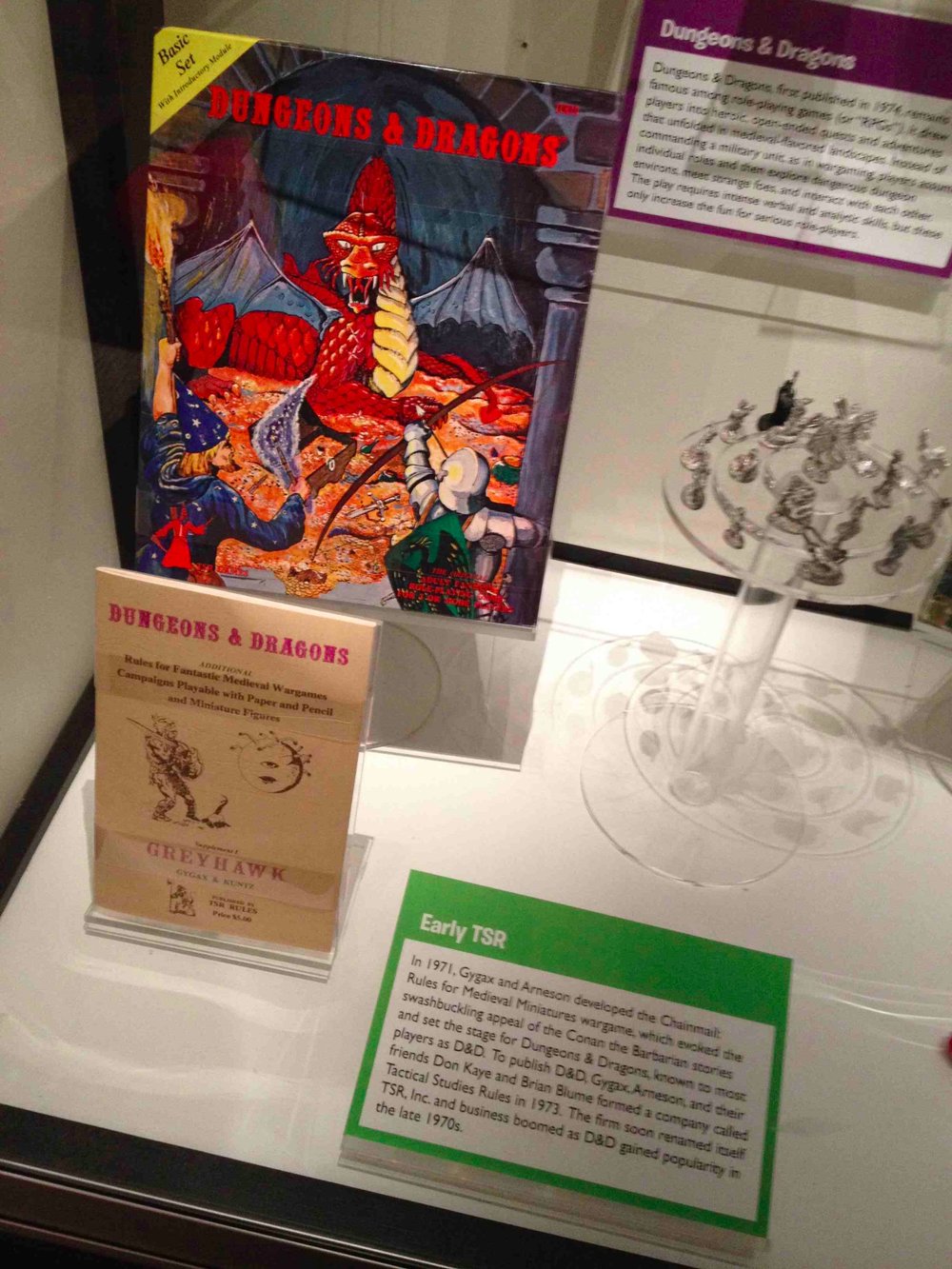 I appeared on Wisconsin Public Radio's "Central Time" Monday 1/20/14 at 4:45PM CST (5:45 ET) on a program about the 40th anniversary of D&D.
I appeared on Wisconsin Public Radio's "Central Time" Monday 1/20/14 at 4:45PM CST (5:45 ET) on a program about the 40th anniversary of D&D. The D&D display at the Strong Museum, Rochester, NY (Image: Ethan Gilsdorf)
The D&D display at the Strong Museum, Rochester, NY (Image: Ethan Gilsdorf)
I appeared on Wisconsin Public Radio's "Central Time" Monday 1/20/14 at 4:45PM CST (5:45 ET) on a program about the 40th anniversary of D&D (and Wisconsin native Gary Gygax) in a segment called "The Influence And Wisconsin Origins Of Dungeons and Dragons." The other guest was Dork Tower creator John Kovalic.
Appearance on the Discovery Channel program
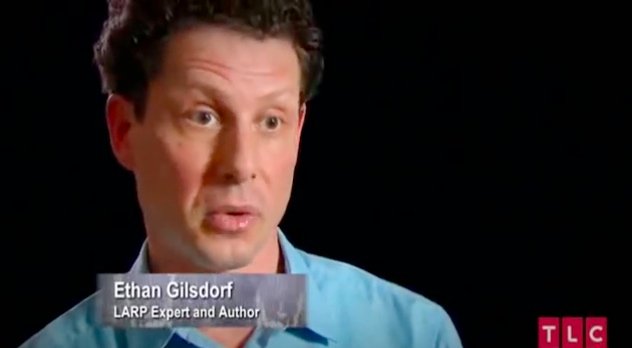
I was lucky to be interviewed for a Discovery Channel program called "Forbidden" that has begun to air around the world. Last I heard, the program was being aired in Poland, Indonesia, and a zillion other countries. Not sure when it actually aired in the U.S., if at all. But someone kindly tracked down an excerpt on YouTube. Here's a snippet from the Nordic "dark Larp" segment I appeared in. I'm also supposed to be in other episodes about farmer role-playing (don't ask), people who dress up like animals, and mermaid subcultures. For some reason, I look a little grumpy in this still. I'm probably just role-playing.More information here.

